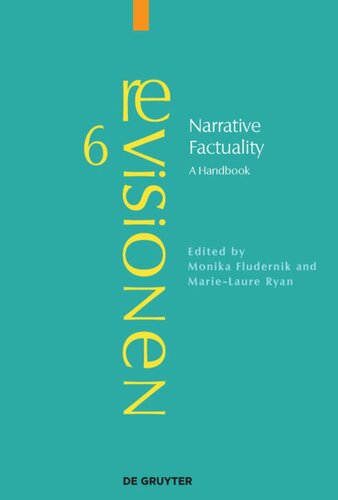

Most ebook files are in PDF format, so you can easily read them using various software such as Foxit Reader or directly on the Google Chrome browser.
Some ebook files are released by publishers in other formats such as .awz, .mobi, .epub, .fb2, etc. You may need to install specific software to read these formats on mobile/PC, such as Calibre.
Please read the tutorial at this link: https://ebookbell.com/faq
We offer FREE conversion to the popular formats you request; however, this may take some time. Therefore, right after payment, please email us, and we will try to provide the service as quickly as possible.
For some exceptional file formats or broken links (if any), please refrain from opening any disputes. Instead, email us first, and we will try to assist within a maximum of 6 hours.
EbookBell Team

5.0
30 reviewsThe study of narrative—the object of the rapidly growing discipline of narratology—has been traditionally concerned with the fictional narratives of literature, such as novels or short stories. But narrative is a transdisciplinary and transmedial concept whose manifestations encompass both the fictional and the factual. In this volume, which provides a companion piece to Tobias Klauk and Tilmann Köppe’s Fiktionalität: Ein interdisziplinäres Handbuch, the use of narrative to convey true and reliable information is systematically explored across media, cultures and disciplines, as well as in its narratological, stylistic, philosophical, and rhetorical dimensions. At a time when the notion of truth has come under attack, it is imperative to reaffirm the commitment to facts of certain types of narrative, and to examine critically the foundations of this commitment. But because it takes a background for a figure to emerge clearly, this book will also explore nonfactual types of narratives, thereby providing insights into the nature of narrative fiction that could not be reached from the narrowly literary perspective of early narratology.